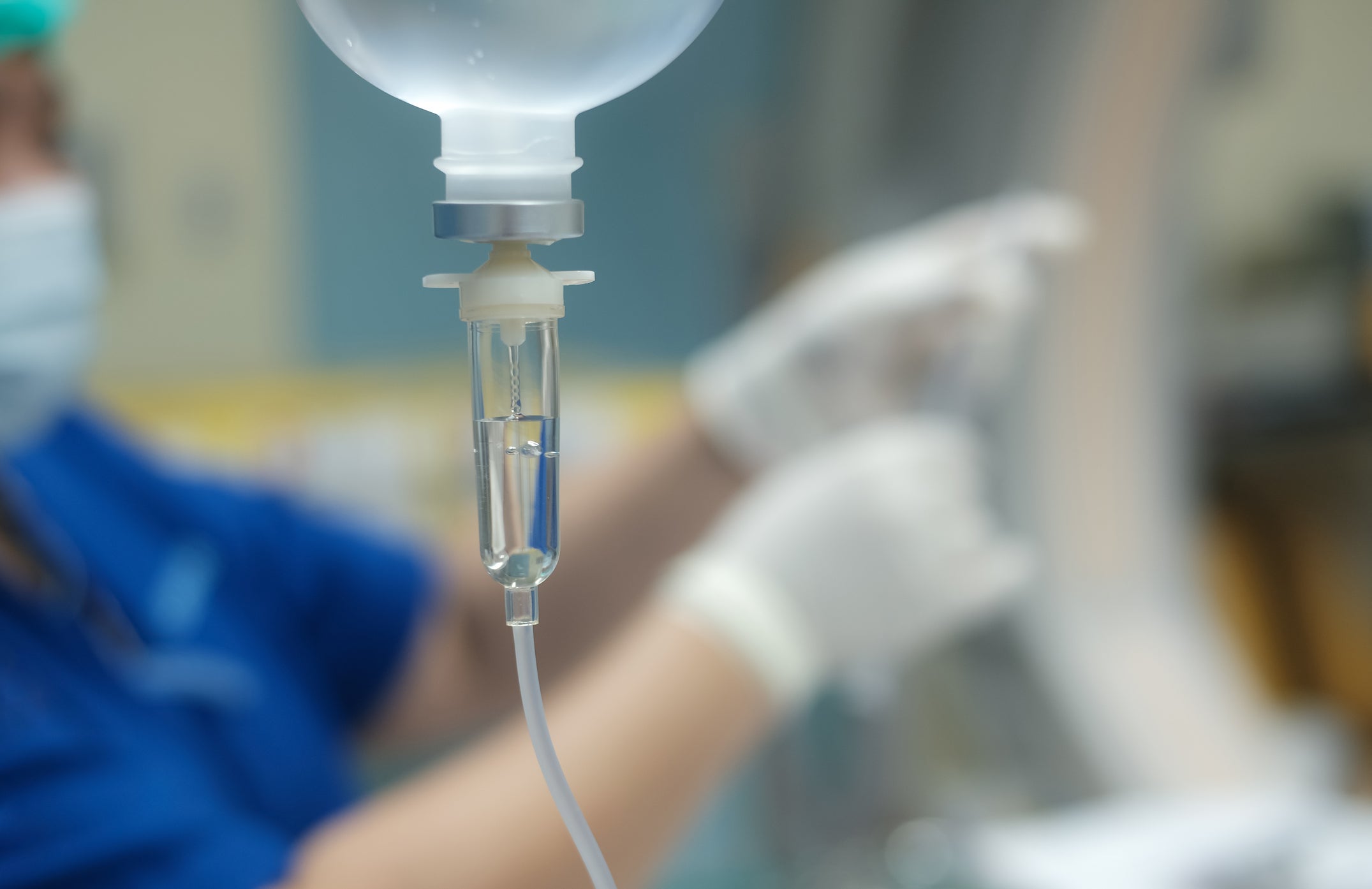Hospitals across US reporting IV shortages after Hurricane Helene led to plant shutdown in NC
Hospitals are calling on the Biden administration to take urgent action, including declaring a national emergency
Your support helps us to tell the story
From reproductive rights to climate change to Big Tech, The Independent is on the ground when the story is developing. Whether it's investigating the financials of Elon Musk's pro-Trump PAC or producing our latest documentary, 'The A Word', which shines a light on the American women fighting for reproductive rights, we know how important it is to parse out the facts from the messaging.
At such a critical moment in US history, we need reporters on the ground. Your donation allows us to keep sending journalists to speak to both sides of the story.
The Independent is trusted by Americans across the entire political spectrum. And unlike many other quality news outlets, we choose not to lock Americans out of our reporting and analysis with paywalls. We believe quality journalism should be available to everyone, paid for by those who can afford it.
Your support makes all the difference.Hospitals around the country are canceling and postponing elective surgeries amid a nationwide shortage of IV fluid thanks to plant closures caused by Hurricane Helene.
Virginia’s UVA Health University Medical Center told The Independent on Monday that it would postpone certain elective surgeries early this week to help conserve its supplies.
The shortage is tied to flooding at healthcare company Baxter International’s western North Carolina plant after a levee breach. The plant produces IV fluid, which is injected into a person’s veins to treat dehydration. It also makes fluids that are used by some patients on home kidney dialysis.
While some products remain at the factory, bridges to access them are mangled. The company has had to begin restricting how much customers can order. Facilities in Virginia, Massachusetts, Minnesota, and other states have reported supply problems.
The shortage has already had an impact on Americans, the American Hospitals Association said in a Monday letter to President Joe Biden.
Baxter says delays to dialysis, a treatment for kidney failure, should be considered, and Massachusetts’ Mass General Brigham told The Associated Press that some patients may receive Gatorade or water to hydrate instead of starting an IV. Although, anyone who needs an IV can still get one.
Baxter provides 60 percent of IV products across the country, or 1.5 million bags, with the plant’s restoration expected to take weeks.

The UVA Health University Medical Center said any postponed surgeries will be rescheduled as soon as possible once supplies rebound.
“We are grateful for our patients’ patience and understanding as we do our part to work through these shortages,” Josh Barney, a spokesman at UVA Health, said in a statement. “We’re doing our very best to ensure that all our patients continue to receive the best care possible.”
Julian Walker, with the Virginia Hospital and Healthcare Association, told The Independent that other Virginia hospitals are evaluating but haven’t had to make similar restrictions. He noted that members of the association, including more than 110 hospitals, had previously dealt with challenges during the Covid pandemic and after the Baxter facility in Puerto Rico was hit by Hurricane Maria in 2017.
“But, what remains to be seen is how long these supply shortages will endure and whether or not they may intensify or just become more challenging if this issue persists beyond a few weeks,” he said.
Virginia health providers not the only ones who have been forced to take action.
Massachusetts General Brigham - a system including 12 hospitals - told NBC 10 Boston it would only receive around 40 percent of its usual allocation for now, and is also taking steps to conserve fluids by being more selective with how they use their supply.
In Minnesota’s Twin Cities, Allina Health and M Health Fairview told Fox 9 that they would have to cancel and reschedule procedures.
The American Hospitals Association, which represents nearly 5,000 hospitals and 2 million nurses, is urging the Biden administration to take action, noting that Baxter and all other suppliers of IV solutions are not accepting new customers.

“As a result, our members are already reporting substantial shortages of these lifesaving and life-supporting products. Patients across America are already feeling this impact, which will only deepen in the coming days and weeks unless much more is done to alleviate the situation and minimize the impact on patient care,” the association wrote.
The association urged Biden to instruct the FDA to declare a shortage of sterile IV solutions, declare a national emergency and invoke the Defense Production Act. The FDA has not declared any new shortages tied to products made at Baxter’s plant.
Baxter did not immediately return a request for comment on the matter.
The company said late last month that it is working with local, state and federal officials to assess damage wrought by the storm, and to implement a plan to bring the plant back online.
“Remediation efforts are already underway, and we will spare no resource - human or financial - to resume production and help ensure patients and providers have the products they need,” José Almeida, Baxter’s chief executive, said in a release.
With reporting from The Associated Press

Join our commenting forum
Join thought-provoking conversations, follow other Independent readers and see their replies
Comments